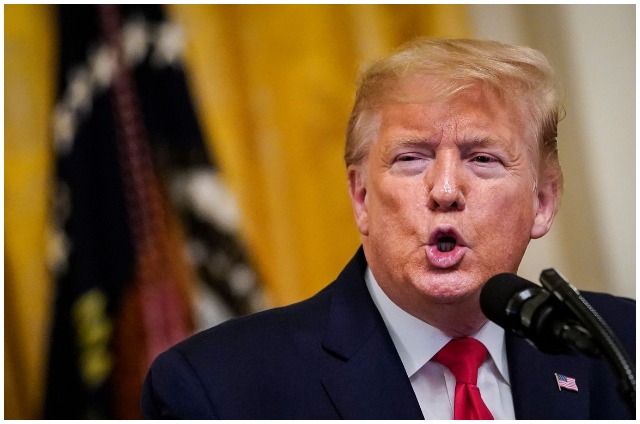 Washington – A US appeals court in San Francisco on Thursday unanimously rejected the government’s request to reinstate President Donald Trump’s travel ban, in a major setback to his agenda.
Washington – A US appeals court in San Francisco on Thursday unanimously rejected the government’s request to reinstate President Donald Trump’s travel ban, in a major setback to his agenda.
The three-judge panel’s ruling leaves in place a lower court’s decision to temporarily lift the controversial ban imposed by Trump through an executive order.
In a 29-page ruling the Ninth Circuit Court of Appeals dismissed the government’s request to reinstate visa restrictions on travellers from seven majority-Muslim countries listed in the executive order.
Trump responded immediately on Twitter in a message indicating the legal battle would go on.
“SEE YOU IN COURT, THE SECURITY OF OUR NATION IS AT STAKE!” he wrote.
The president later told reporters: “It’s a decision that we will win, in my opinion, very easily.”
The legal wrangling will continue because Thursday’s ruling covered only the question of the temporary block on the travel ban, not its merits.
Trump made national security a cornerstone of his campaign and has argued forcefully for the temporary travel ban, saying it was necessary to protect Americans from terrorists entering the country.
Lawyers are now set to file briefs arguing for a preliminary injunction – a more permanent block of the ban – over the next nine days. But a request from the Justice Department for the Supreme Court to intervene immediately is also a possibility.
The Supreme Court currently has only eight members and is ideologically split. A 4-4 tie would keep in place whatever the Ninth Circuit Court of Appeals decides.
For now, those who opposed the travel ban were pleased. The state attorney general who had sued Trump over the ban, Bob Ferguson of Washington, said the appeals court ruling was a “complete victory” for his side.
The judges said the government had not shown that a failure to lift the temporary block on the order would cause irreparable injury, and in a slam against the merits of the ban itself said the government had failed to show the likelihood of success of its appeal.
The ruling also said the government had “pointed to no evidence that any alien from any of the countries named in the order has perpetrated a terrorist attack in the United States.”
It said that while the public had a “powerful interest” in national security and the ability of the president to enact policies, it also had an interest in free flow of travel, avoiding separation of families and in freedom from discrimination.
“We need not characterize the public interest more definitely than this,” the ruling said.
Trump’s executive order bars citizens of Iran, Iraq, Libya, Somalia, Sudan, Syria and Yemen from entering the US for 90 days, all refugees for 120 days and indefinitely halts refugees from Syria.
During emergency arguments on Tuesday the judges questioned whether the executive order attempted to impose a “Muslim ban,” an assertion that government attorneys denied.
But the lawyers for the states of Washington and Minnesota cited numerous statements by Trump about his intent to implement a “Muslim ban” and evidence they claim suggests that the executive order was intended to be that ban.
On that point the judges said the states’ claims “raise serious allegations and present significant constitutional questions,” and they would consider those claims after the merits of the appeal have been argued.
The administration argued that Trump’s order was legal and that the district judges decision to block it “second-guesses the president’s national security judgment.”
The two states that sued in opposition to the executive order argued that the ban harmed their economies by blocking employees of companies in the states who have the legal right to be in the country.
They also argued that it has blocked students and faculty members from returning to state universities, separated families and kept longtime residents from travelling overseas.
-dpa










